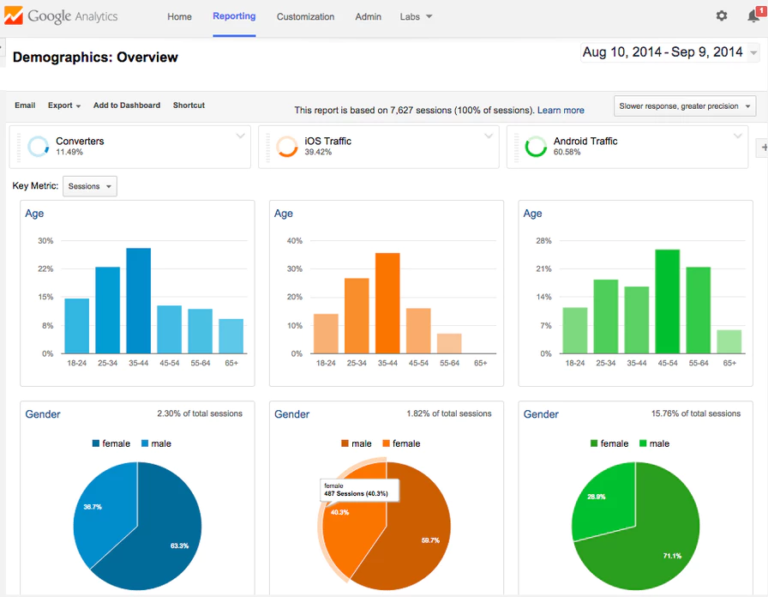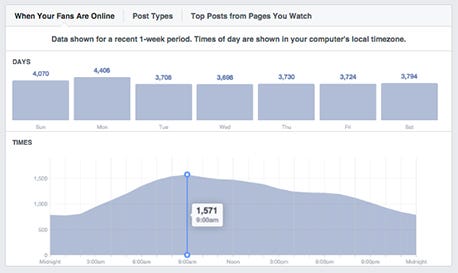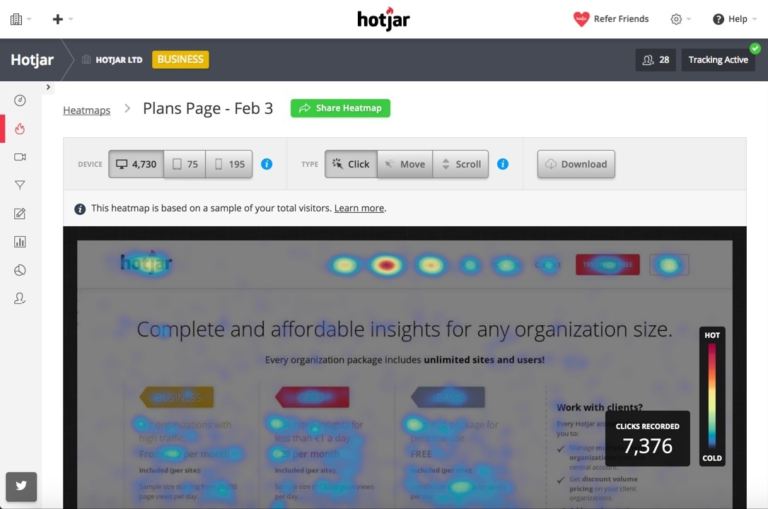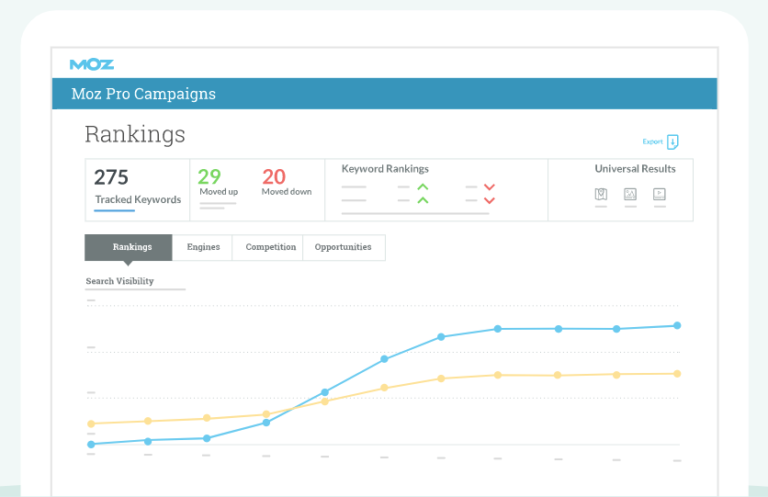John Wanamaker is famously quoted as saying, “Half the money I spend on advertising is wasted; the trouble is, I don’t know which half.” In reference to traditional marketing methods, he was certainly onto something. But in the digital world, marketing analytics tools can empower your marketing team to pivot as results come in.
Digital analytics tools give you actionable information on what works — and what doesn’t — so you can effectively scale your business. But with so many available nowadays, it can be difficult to know which are worth the investment, and which are a waste of your time.
That’s why we’ve broken down our favorite tools here, all of which we either currently use at Mod Girl Marketing or have used in the past. These 8 marketing analytics tools offer powerful data that can make a massive difference in your business, including analytics on your blog posts, social media, SEO, and website.
Want to learn what changes you should make to your website to improve its performance?
Take our Mod Website Profits Quiz now to find out which opportunities you might be missing to drive traffic, boost revenue, and increase your ROI.
8 Marketing Analytics Tools for Digital Marketers
Google Analytics
One of our favorite website analytics tools, Google Analytics, is used by more than half of the top million websites online.

Google Analytics is a free tool from Google that provides insight and useful data on how users interact with your website. It offers all sorts of data, including specifics regarding:
- Your most visited pages
- How long visitors spend on your website
- Websites the visitors came from
- Demographics of your visitors (countries, age, gender, browser, interests, etc.)
Interpreting this data takes some skill, but you can choose from a number of premade reports in the Solutions Gallery to quickly gather the information you need to make decisions about your business.
Google Search Console
Another free tool from Google, the Search Console marketing analytics tools allow you to see exactly how your website is performing. You can track where your pages are showing up in Google search rankings, the click-through rate you’re getting on those pages, who is linking to your site, and much more.
In addition, Google Search Console lets you check for malware, crawl errors, and content issues (such as meta description problems) that could hurt your rankings or traffic. By checking these free reports, you can take action to fix the problem and quickly improve your web traffic.
Sumo
Formerly known as SumoMe, Sumo offers a variety of tools to improve your website. With their Content Analytics app, you can see if visitors are reading your blog content all the way through, and with their Heat Maps app, you can figure out exactly where people are clicking and adjust your call to action buttons, headlines, images, and more accordingly.
With a variety of tools available, Sumo allows you to obtain real-time information about your site and web traffic and make data-backed decisions to improve both.
Platform-based Social Media Analytics Tools
While there are several social media dashboards available that combine all of your social media analytics in one place, it’s also a good idea to visit each platform’s social media analytics when looking to do more in-depth reporting.

Facebook for Business, for example, shows your organic and paid reach for each post, views for each tab of your page, when people who like your page are online, and more. They even offer valuable marketing analytics for Facebook Group admins.
Twitter Analytics breaks down every tweet by the number of impressions, engagements, and profile clicks. It also offers extremely detailed demographic information on your followers, including their lifestyle type, buying style, wireless carrier, interests, net worth, house ownership, and more.
And YouTube Analytics lets you monitor the success of your channel by presenting you with real-time data on watch time, earnings, interactions, and more about each of your videos.
HotJar

HotJar is an all-in-one digital analytics dashboard that’s popular for its heatmap capabilities. Most marketing analytics tools provide website metrics and data you can use in SEO efforts, but lack in terms of actionable insights that can be used to improve your site’s design.
HotJar fixes this information gap by showing you what areas of your website visitors are interested in, with implications as to where certain elements should be placed. After all, marketing is just a guess until you have data to back your decisions.
SimilarWeb
SimilarWeb sells data about traffic for websites from all over the world and is one of the most powerful tools for drawing insights about said data. You’ll find data about geography, referring sites, search traffic, social, display advertising, audience, similar sites, and mobile apps.
You can search for traffic data about websites for free, but more in-depth insights will cost you.
Moz Pro

Moz offers limited access to many of their best Pro tools for free, but their all-in-one paid plan enables you to execute SEO campaigns at an enterprise level. Use Moz Pro to execute keyword research, backlink audits, and find opportunities to improve your website’s SEO. The Moz Pro standard plan costs $99/month.
SEMRush
SEMRush is a multi-purpose service ideal for any digital marketing analyst, offering information on your SEO, Paid Traffic, Social Media, and Content and PR. The web analytics tool helps you perform backlink audits, collect brand mentions, compare your social media presence to a competitor’s, and more.
It is an excellent tool for SEO, with a focus specifically on competitor intelligence. Knowing the keywords your competition is trying to rank for and how well their efforts are working can be critical in determining your own company’s SEO strategy. SEMRush’s entry level Pro plan starts at $99.95/month.
Grow Your Business with the Mod Inbound Bundle
Marketing analytics tools are great at determining how well your marketing strategy is performing, but actually creating that strategy in the first place can be a big hurdle. To grow your business quickly by using inbound marketing, you need a strategy that drives traffic and converts that traffic into clients.
—
Originally posted on modgirlmarketing.com
